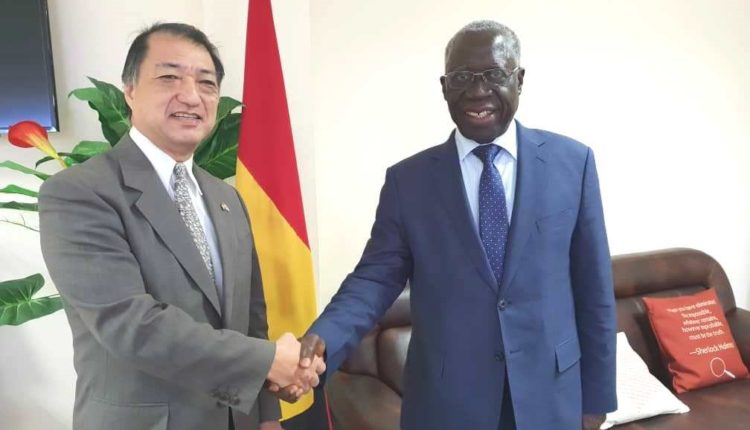Japan Partners Ghana On Industrialisation Agenda
Ghana and Japan have initiated efforts aimed at strengthening bilateral ties in pursuit of Ghana’s Industrialisation drive.
As part of the process, the Japanese government has announced its intention to establish an office for the Japan External Trade Organisation (JETRO), in Ghana.
This intention comes after President Nana Akufo-Addo’s visit to Japan last year, where he encouraged the Japanese government to invest in Ghana and to take advantage of the automobile manufacturing development policy that the government of Ghana has initiated.
According to the new Japanese Ambassador to Ghana, Mr. Tsutomu Himeno, JETRO’s presence in Ghana will attract Japanese investors into the country.
Mr. Himeno made this known when he paid a courtesy the Senior Minister, Mr. Yaw Osafo-Maafo, last week.
JETRO is a Japanese government-related organization that works to promote mutual trade and investment between Japan and the rest of the world.
Originally established in 1958, JETRO seeks to promote Japanese exports abroad.
JETRO’s core focus in the twenty-first century has shifted towards promoting foreign direct investment into Japan and helping small to medium size Japanese firms maximize their global export potential.
In pursuance of Ghana’s industrial transformation, the bilateral tie will further see the massive support from the Japanese government to the Kwame Nkrumah University of Science and Technology (KNUST) in areas of technical and skills development training.
Automobile Agenda
In his response, Mr. Osafo-Maafo urged the Japan government to take advantage of the opportunity in the automobile manufacturing industry.
He indicated that, Ghana has recently attracted considerable interest from major global vehicle manufacturers in response to Government’s prioritisation of the automotive sector as a key strategic anchor of Ghana’s industrialization plan.
According to Senior Minister, 89% of cars used in Ghana are second hand vehicles whilst 10% are new cars.
“Government therefore wants to encourage the use of new cars and would thus provide incentive packages to local and foreign automobile companies in order to attract new vehicles into the country,” he said.
Ghana’s pursuit of industrialization, places Ghana in a strategic position to become an automotive manufacturing hub in the ECOWAS sub-region.
Public Sector Reforms
The Senior Minister further called on the Japanese Government to support the implementation of the Public Sector Reforms—a key mandate under his Office which seeks to improve efficiency and service delivery for citizens and the private sector.
He indicated that the World Bank is partly funding Ghana’s Public Sector Reforms and asked the Japanese government which has an efficient public service delivery system, to assist with the funding and implementation of the programme.
By Grace Ablewor Sogbey


Comments are closed.